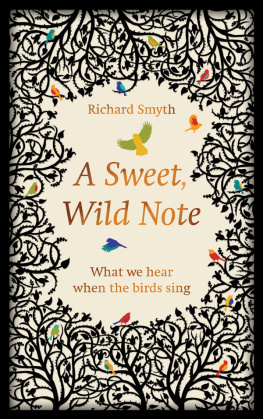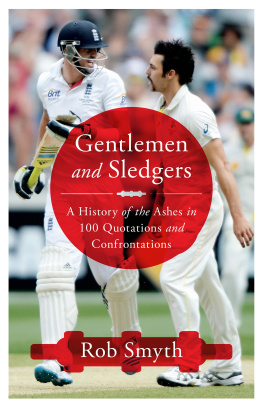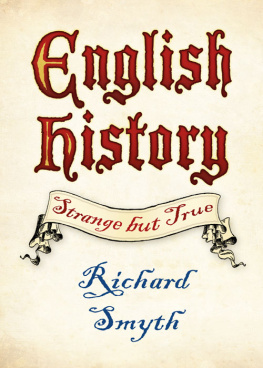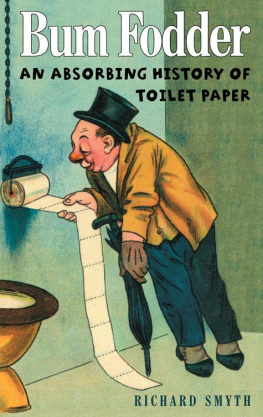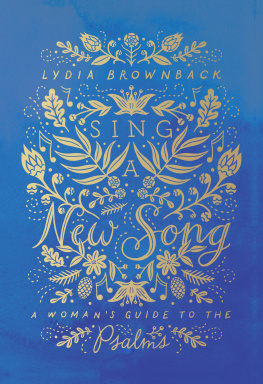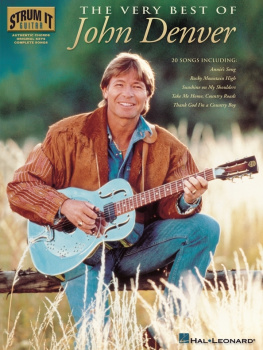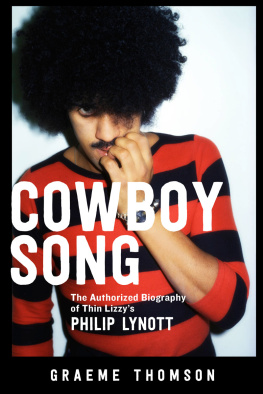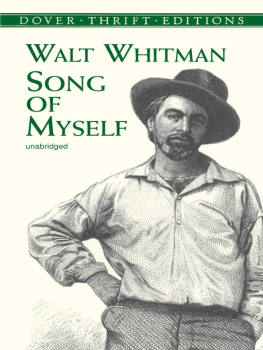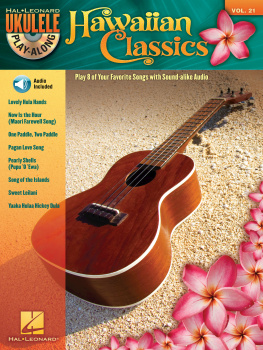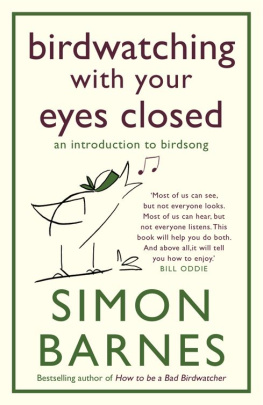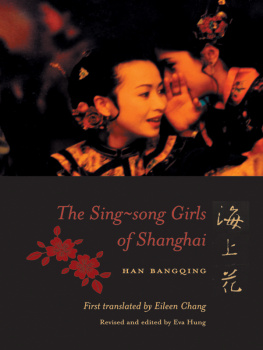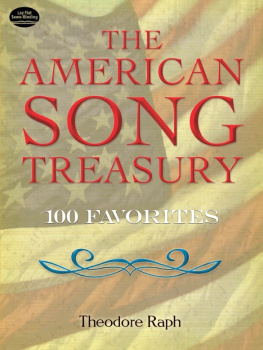Smyth - A Sweet, Wild Note: What We Hear When the Birds Sing
Here you can read online Smyth - A Sweet, Wild Note: What We Hear When the Birds Sing full text of the book (entire story) in english for free. Download pdf and epub, get meaning, cover and reviews about this ebook. City: La Vergne, year: 2017, publisher: Elliott & Thompson, genre: Art. Description of the work, (preface) as well as reviews are available. Best literature library LitArk.com created for fans of good reading and offers a wide selection of genres:
Romance novel
Science fiction
Adventure
Detective
Science
History
Home and family
Prose
Art
Politics
Computer
Non-fiction
Religion
Business
Children
Humor
Choose a favorite category and find really read worthwhile books. Enjoy immersion in the world of imagination, feel the emotions of the characters or learn something new for yourself, make an fascinating discovery.
A Sweet, Wild Note: What We Hear When the Birds Sing: summary, description and annotation
We offer to read an annotation, description, summary or preface (depends on what the author of the book "A Sweet, Wild Note: What We Hear When the Birds Sing" wrote himself). If you haven't found the necessary information about the book — write in the comments, we will try to find it.
Smyth: author's other books
Who wrote A Sweet, Wild Note: What We Hear When the Birds Sing? Find out the surname, the name of the author of the book and a list of all author's works by series.
A Sweet, Wild Note: What We Hear When the Birds Sing — read online for free the complete book (whole text) full work
Below is the text of the book, divided by pages. System saving the place of the last page read, allows you to conveniently read the book "A Sweet, Wild Note: What We Hear When the Birds Sing" online for free, without having to search again every time where you left off. Put a bookmark, and you can go to the page where you finished reading at any time.
Font size:
Interval:
Bookmark:
Well worth a read... hits many sweet notes
Mark Avery, author of Remarkable Birds and Inglorious: Conflict in the Uplands
A delightful meditation on the wonders of natures best free show birdsong and how it has seeped into our culture through the ages
Stephen Moss, author of Wild Hares and Hummingbirds and Wild Kingdom
Between the fibrillating throats of birds and the human mind lies an extraordinary landscape, a place created by the intersection of culture, biology, and literature. Richard Smyth is a brilliant, insightful, and witty guide in this fascinating terrain
David George Haskell, author of The Songs of Trees and the Pulitzer finalist, The Forest Unseen. Professor of Biology, University of the South
This is a delightful book that does exactly what it says on the cover: it plays a sweet wild note. If you are already tuned in to bird song you will learn a lot more and if you arent you will want to be. Reading it honestly seems to have improved my (ornithological) listening and hearing as well as cheering my heart
Sara Maitland, author of Gossip from the Forest: The Tangled Roots of Our Forests and Fairytales

For Frin
The language of birds is very ancient, and, like other ancient modes of speech, very elliptical; little is said, but much is meant and understood.
Gilbert White, letter to Daines Barrington, September 1778

These are brand-new birds of twelve-months growing, Which a year ago, or less than twain, No finches were, nor nightingales, Nor thrushes, But only particles of grain, And earth, and air, and rain.
Thomas Hardy, Proud Songsters (1928)
M y feelings about birdsong no, my problems with birdsong were crystallised for me in, appropriately enough, a tweet, one day in 2011:
@BrianGittins1: The birds are talking to one another in their stupid language.
It was the comedian David Earl, tweeting in the guise of his alter ego Brian Gittins. It was a joke, of course. But for me, it felt liberating like reading an article about how Futurama really was a better show than The Simpsons, or meeting someone who says that no, they dont really get Radioheads later albums either.
My name is Richard and I was a birdsong sceptic.
Id better explain myself. Im a birdwatcher;granddad, along with skinny ankles and a love of Test cricket). The thing was, as a kid I didnt do a great deal of actual birdwatching. In theory, I was all for it; in practice, it turned out that the countryside, once you got there, was just so full of diverting alternative pastimes (playing army, going on rope swings, falling out of trees, general fighting, shouting, etc.) that the birds didnt get a look-in. One just didnt have the time.
But I was a studious reader of nature books, field guides, the magazines sent out by the Young Ornithologists Club anything, really, as long as birds were involved. The nineteenth-century naturalist Charles Waterton (who lived just down the road from where I grew up in Wakefield, West Yorkshire) warned about people like me: young amateur naturalists who spent more time in books than in bogs.
This explains, I think, why for a long time my experiences of the bird-life around me the way I saw it, identified it, thought and felt about it were missing a dimension.
When I was twelve or so, I could identify practically any bird in my bird book by sight (give or take the odd wandering warbler or far-off winter gull). Here is a full list of birds I could identify by sound alone at that age:
(1) Some sort of crow
I knew a caw when I heard it. It meant there was definitely a crow or a rook or a jackdaw or possibly a magpie in the vicinity.
(2) (a) A woodpigeon, unless it was a collared dove
(2) (b) A collared dove, unless it was a woodpigeon
I knew a coo, too. Its strange to think that collared doves were unknown in the UK until the 1950s; when I was a boy, in 1980s suburbia, they were all over the place, like pale-grey pebbles balanced on roof-ridges and half-hidden in leylandii.
(3) A duck
Well, come on.
(4) A herring gull
The twanging pyah pyah pyah bawled from a fishing-village chimney was and still is the sound of a summer holiday on the Yorkshire coast, no less than the marvellous ching, chunk, whirr and bleep of Corrigans seafront arcade in Scarborough.
(5) A peacock
Surprise entry at Number 5. Our suburban cul-de-sac was bounded on one side by Mr Andrassys smallholding. It can only have been an acre or two, but at one time or another he kept geese, deer, guinea fowl, goats and peacocks. They were often on our back lawn, confusing the cat. Andrassys smallholding is all houses now.
Birdsong wasnt part of my world. No, thats not quite right: it was, but like my parents mortgage, or the governments education policy, or the electronics of my GameBoy I couldnt make anything of it; it didnt mean anything to me. I was shut out of the birds conversation.
This book is about what Id been missing partly, at least. Its also about what people poets, bird fanciers, composers, film-makers, ornithologists, you, even me have been hearing. Its about skylarks and nightingales (much harder to avoid in poetry than in real life), but its also about magpies and wagtails, chaffinches and sparrows; its about the tuts and sneezes of the wren, the booee of the starlings swanee-whistle, the blackbirds burble, the woodpigeons somnolent coo (take two cows, Taffy, theyre supposed to say); the squeaky hinge of the great tit, the chiffchaffs unending two-step, the jays B-movie screams in the oak canopy. All the stuff I never really paid attention to.
The funny thing is that I wasnt alone in my cluelessness about birdsong. In 1935, the biologist Walter Garstang of whom more later lamented that the number of our countrymen and women who can pick out an individual song from the orchestra of spring and correctly identify it is extraordinarily small. Even way back in the 1760s, the naturalist Gilbert White (one of the great listeners) found that the yeomen of his Hampshire village believed that the reeling call of the grasshopper warbler was made by an insect: The country people laugh when you tell them that it is the note of a bird.
Its not that they didnt care, exactly. They just didnt listen.
Percy Edwards, who went on to find fame on the radio as a peerless and painstaking bird-imitator, recalled the music-hall bird whistlers with whom hed often shared a bill in the early days of his career. Many would just stick their fingers in their mouths and whistle, making a noise like no bird ever made; to impersonate a thrush, one of them told Edwards, I just do the same noise I do for them all. The audiences, presumably, didnt know what sort of noise a thrush (or a skylark, or a blackbird) actually makes but theyd still paid for a ticket. Perhaps the general idea was something along the lines of I dont know much about birdsong, but I know what I like.
On the website of the University of Aberdeens Listening to Birds project a fascinating study of our relationship with birdsong researcher Andrew Whitehouse posts comments from members of the public recalling memorable birdsong experiences. Its wonderful: an in-their-own-words archive of how we listen to birds, and what it is we hear. One contributor remembers scraping a living as a songwriter in north London, skint and unhappy:
Font size:
Interval:
Bookmark:
Similar books «A Sweet, Wild Note: What We Hear When the Birds Sing»
Look at similar books to A Sweet, Wild Note: What We Hear When the Birds Sing. We have selected literature similar in name and meaning in the hope of providing readers with more options to find new, interesting, not yet read works.
Discussion, reviews of the book A Sweet, Wild Note: What We Hear When the Birds Sing and just readers' own opinions. Leave your comments, write what you think about the work, its meaning or the main characters. Specify what exactly you liked and what you didn't like, and why you think so.

